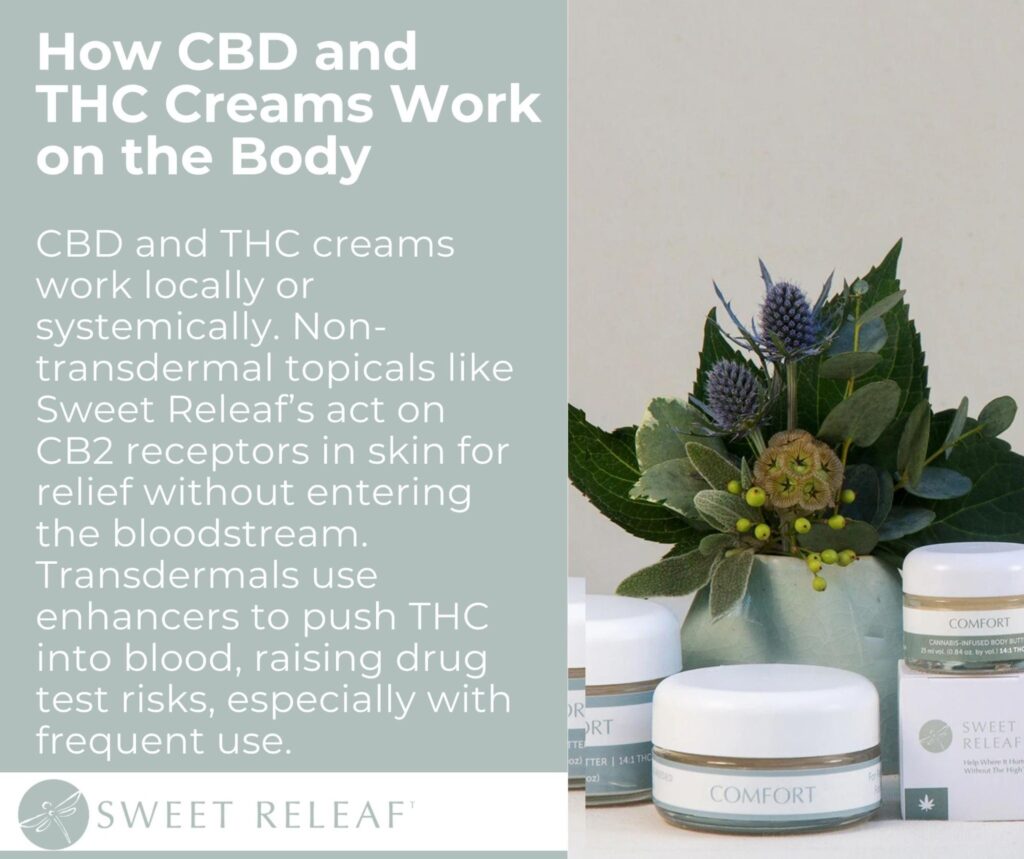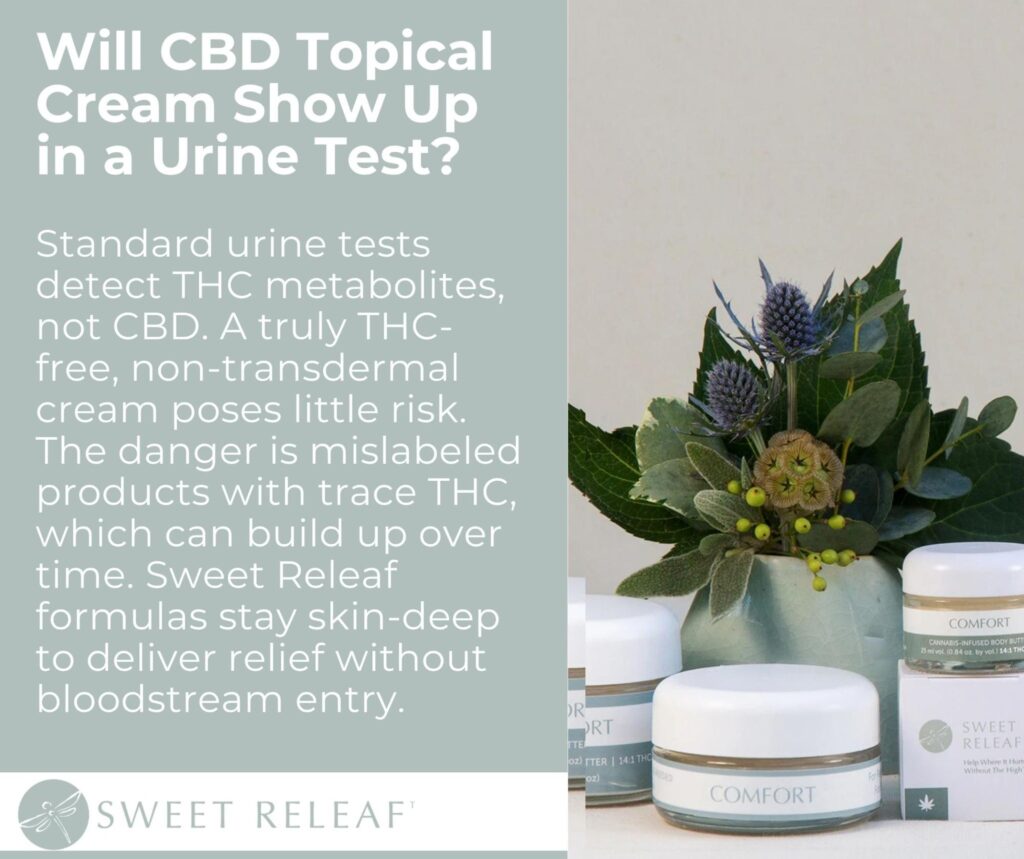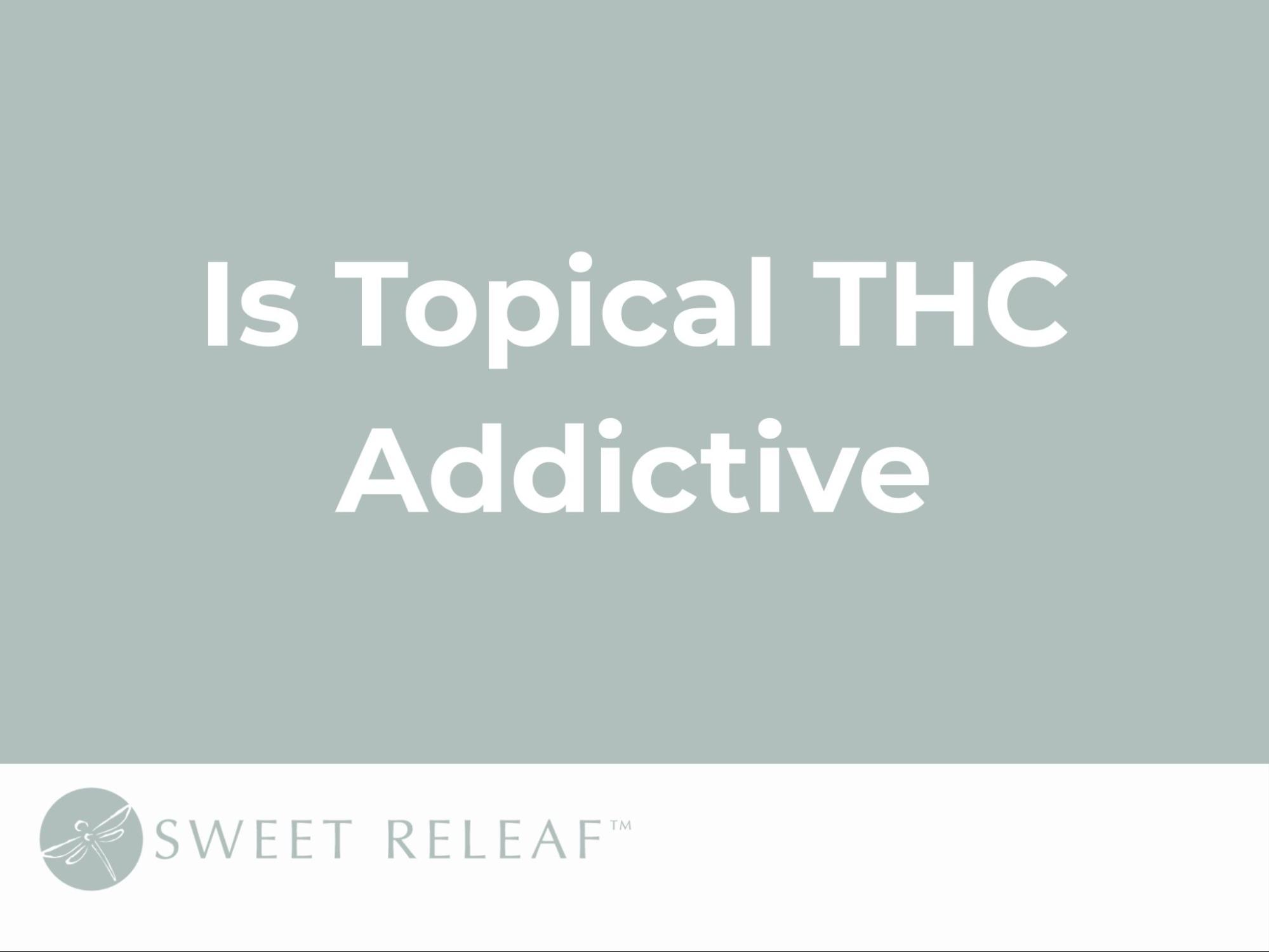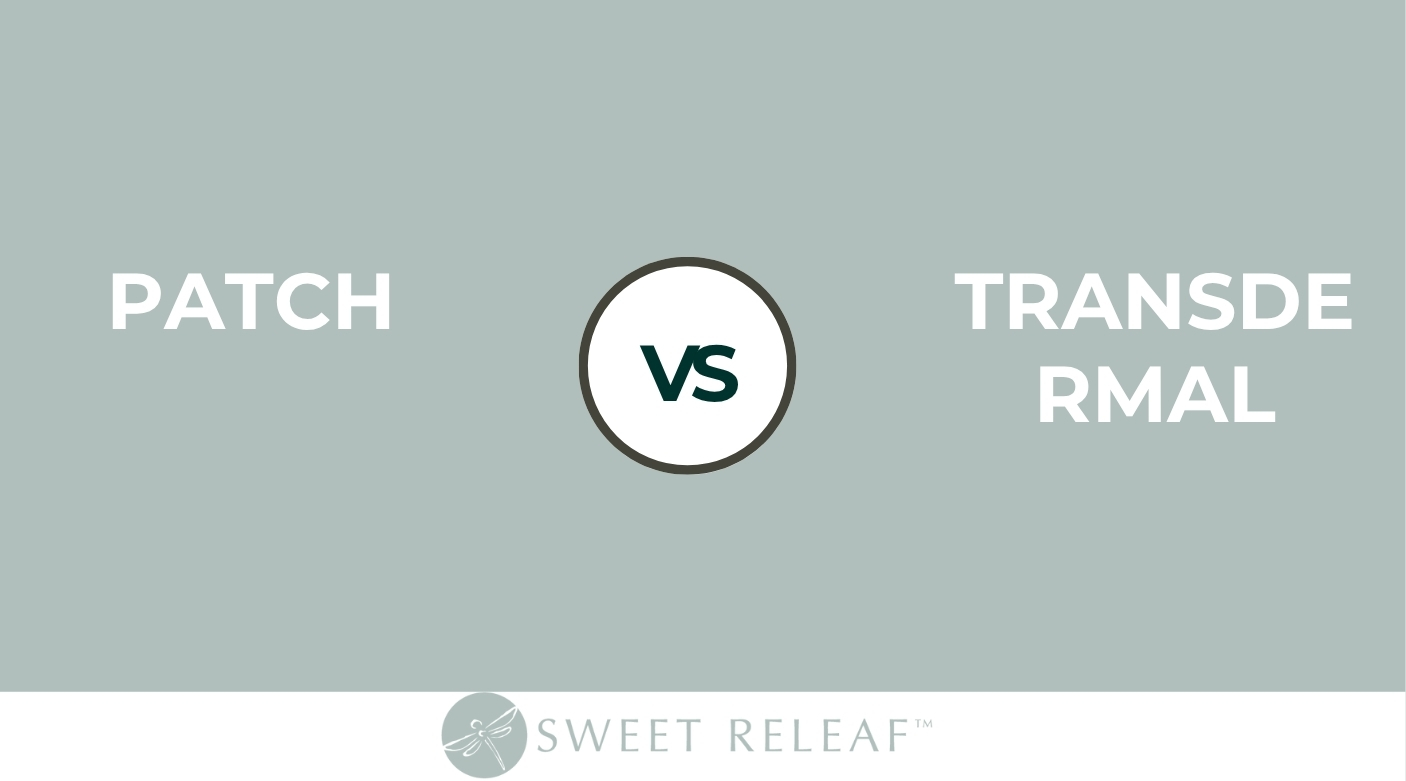Standard cannabis topicals don’t enter the bloodstream, so they usually won’t trigger a THC urine test.
But mislabeled, full-spectrum, or transdermal products can cause positives, especially with frequent use. Know the risks before applying.
If you’re wondering whether your topical cream could put you at risk for a failed THC test, the answer depends on what’s inside and how it’s made. The impact varies by situation:
- Medical cannabis patients – Low risk with non-transdermal formulas, but positives are possible if THC content is above trace levels.
- Athletes – Strict anti-doping rules mean any THC in your system can lead to sanctions.
- Employees subject to drug testing – Even trace THC can build up and trigger a fail.
- Job seekers – A single unexpected positive can cost you the offer.
- People on probation or parole – Any THC detection can violate terms, regardless of intent.
In this article, I’ll break down whether CBD or THC creams show up in urine tests, how long topical THC can stay in your system, and what to know before using them.
I’ll also share why Sweet Releaf products are formulated differently, so you can get real relief without jeopardizing your livelihood.
If you want the full breakdown, keep reading.
How CBD and THC Creams Work on the Body

Local Relief vs. Bloodstream Entry
When you apply a standard cannabis topical, like Sweet Releaf’s emulsion body butters, the cannabinoids interact with CB2 receptors in your skin and underlying tissues.
This localized action helps reduce inflammation, ease muscle tension, and calm pain signals without pushing cannabinoids into your bloodstream.
That’s why, for most users, a quality non-transdermal topical carries little to no risk of triggering a THC urine test.
The picture changes when we move into transdermal territory.
Products like cannabinoid patches, lotions formulated with DMSO, or creams that include specific chemical penetration enhancers are intentionally designed to cross the skin barrier and deliver active compounds into the blood.
While this can be useful for systemic relief, it also means THC will enter circulation, and once it’s there, your body breaks it down into detectable metabolites, raising your drug test risk significantly.
Skin Absorption Factors
Your skin is a remarkably good barrier, but certain ingredients can change that. Ethanol, oleic acid, and organosilanes are examples of penetration enhancers that increase cannabinoid absorption depth.
This can blur the line between a “topical” and a “transdermal” product.
Another factor: how often you use it. THC is fat-soluble, meaning it binds to fat cells in your body.
If a product delivers even small amounts of THC into your system on a regular basis, those amounts can accumulate.
Over time, especially with daily or multiple applications, this buildup can push you past the 15 ng/mL urine test threshold, even if each single dose was below it.
Sweet Releaf’s approach is different: our formulations focus on targeted, skin-deep relief, avoiding transdermal delivery altogether so you can address pain without risking systemic THC exposure.
Will CBD Topical Cream Show Up in a Urine Test?

Standard urine drug tests are not looking for CBD at all; they’re designed to detect THC metabolites, particularly 11-COOH-THC, which indicate that THC has entered your bloodstream and been processed by your liver.
If your cream is both truly THC-free and non-transdermal, the risk of a positive test is extremely low.
That’s because cannabinoids in a standard topical stay localized in the skin and surrounding tissues, never reaching the blood in measurable amounts.
The real danger lies in mislabeling. Some products marketed as “THC-free” have been found to contain detectable THC due to poor manufacturing controls, cross-contamination, or deliberate misrepresentation.
Even trace amounts can add up with regular use, especially in people who are tested at lower thresholds (like competitive athletes or certain federal employees).
This is why Sweet Releaf not only formulates for localized relief without bloodstream entry, but also relies on precise ingredient sourcing and production practices to keep cannabinoid profiles consistent, so customers can feel confident about what they’re putting on their skin.
Can CBD Cause a Positive THC Urine Test?
CBD on its own will not cause you to fail a THC urine test; the tests are not designed to detect cannabidiol at all.
The problem comes when CBD products contain THC, whether intentionally or by accident.
Full-spectrum CBD creams are the most likely culprits.
By definition, full-spectrum means they retain all naturally occurring cannabinoids from the plant, including up to 0.3% THC under federal hemp guidelines.
While that sounds negligible, regular or heavy use can allow THC to build up in your fat cells and eventually cross the urine test threshold.
Even products marketed as broad-spectrum or THC-free are not immune.
Poor labeling practices, shared processing equipment with THC-rich products, and inadequate third-party testing can all lead to unintentional THC contamination.
Sweet Releaf sidesteps these risks by designing our topicals for localized relief only and using strict ingredient controls.
That means our high-THC formulas are purposefully kept non-transdermal, powerful enough to work where you need them, but without introducing unnecessary risk for those concerned about testing.
How Long Does Topical THC Stay in Urine?
If THC from a cream or lotion makes its way into your bloodstream, usually through a transdermal formula or an ingestion route, your body will metabolize it into compounds like 11-COOH-THC.
These metabolites are what urine tests detect, and they can linger far longer than the sensation of relief.
- Chronic use: If you apply a THC-containing transdermal daily or multiple times a day, metabolites can remain detectable for 2-3 weeks or longer after stopping. In heavy or long-term users, traces may persist for over a month.
- Single low-dose exposure: Often clears from urine within a few days, but this depends on individual metabolism, hydration, body fat percentage, and frequency of physical activity.
- Variable factors: People with slower metabolisms, higher body fat, or less hydration tend to store and release THC metabolites more slowly.
With Sweet Releaf’s non-transdermal topicals, THC is designed to stay local to the skin and underlying tissues, meaning it’s not circulating in your system, and the “how long” question simply does not apply.
That’s intentional, so you can address pain without wondering how long the clock will tick before you test clean.
Can THC Lotion Cause You to Test Positive?
Yes, but not all THC lotions carry the same risk. The main concern is with products that are:
- Transdermal – Designed to deliver THC into the bloodstream.
- Mislabeled – Marketed as THC-free but actually containing detectable amounts.
- Formulated with penetration enhancers – Ingredients like ethanol, oleic acid, or DMSO that push cannabinoids deeper into the skin and potentially into circulation.
Even seemingly harmless hemp seed oil products have raised caution flags in military guidance.
While hemp seed oil naturally contains negligible THC, some products are contaminated during processing or mislabeled, and sensitive testing protocols can detect even trace exposure.
The risk increases if you’re:
- Subject to frequent testing (military, certain federal employees).
- Tested at low thresholds, for example, the standard federal workplace cutoff for THC metabolites is 15 ng/mL in urine. Chronic exposure to small amounts of THC can exceed that limit.
Sweet Releaf’s THC-rich body butters are specifically non-transdermal, delivering targeted relief without crossing into systemic circulation.
That design is what helps our customers, from athletes to active seniors, enjoy the benefits of high-THC plant medicine while keeping drug test worries to a minimum.
How to Reduce Your Risk of a Positive Drug Test
If you rely on cannabis topicals for pain relief but can’t risk a failed drug test, there are a few smart steps you can take to protect yourself:
- Choose broad-spectrum or CBD isolate products with up-to-date third-party COAs
Always check a product’s Certificate of Analysis from a reputable lab. It should clearly show THC content, ideally “ND” (none detected), for your batch number. This is your best defense against mislabeled or contaminated products. - Avoid full-spectrum or transdermal products before known testing
Full-spectrum CBD creams can legally contain up to 0.3% THC, and transdermal products are designed to push cannabinoids into your bloodstream. Both raise the odds of THC showing up on a urine test. - Test yourself at home before official screenings
At-home THC urine test kits are inexpensive and can give you peace of mind before a scheduled or expected test. - Avoid daily application of THC-containing creams if you face testing
THC is fat-soluble and accumulates over time. Even small doses can push you over the threshold with regular use. - Stop using 30+ days before a scheduled test
This window gives your body time to metabolize and eliminate stored THC. The exact timeframe will depend on your body composition, metabolism, and activity level.
Sweet Releaf’s formulas are designed to make this balancing act easier, delivering potent, localized relief without systemic absorption, so you don’t have to choose between staying comfortable and staying compliant.
Why Sweet Releaf Topicals Are Different
- Emulsion-based, not transdermal, designed for local relief without bloodstream entry.
- Made from raw cannabis trichomes, not distillates, for full entourage effect and maximum relief.
- High-THC formulas for pain relief, but crafted for topical action only, are ideal for people who want relief without psychoactive effects.
- No synthetic cannabinoids, no toxic preservatives, no misleading “THC-free” claims.
- Trusted by chronic pain patients, post-surgery recovery users, and active adults who need to stay clear-headed.
If you’re facing pain but also drug testing concerns, explore Sweet Releaf’s Comfort, Comfort+, and Ayurvedic roll-ons. You’ll get targeted relief without the greasy feel, and without relying on opioids.




